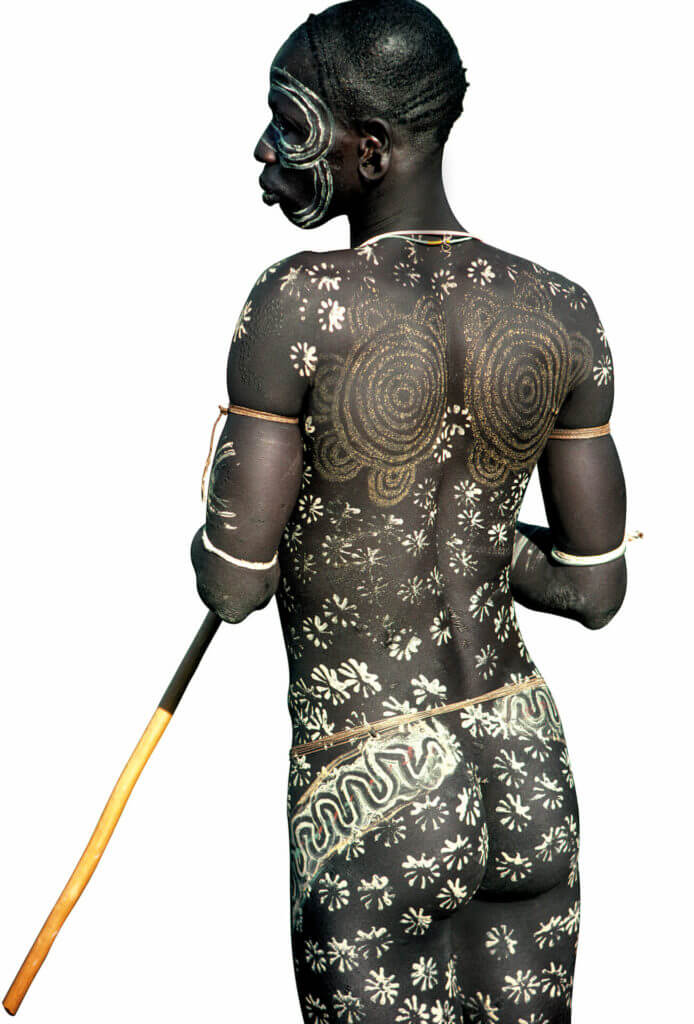
Surma Courtship

The Surma people live in the remote wilderness of southwestern Ethiopia near the border of Sudan. When we first visited them in 1985, we had to organize a mule train of fifteen pack animals and travel over 10,000-foot mountains for a stay of five weeks.
A little known tribe numbering around 30,000, the Surma are renowned throughout East Africa for their mastery of the art of body painting. Their unique celebrations of courtship and marriage take place after harvest season, when food is plentiful. For a three month period, young men and women spend considerable time painting their bodies and adorning themselves to attract the opposite sex.
Each morning during courtship season, men, women, and children go down to scrape chalk from the riverbank. Mixing the chalk with water to create a white paste, they apply this “paint” to their bodies, creating beautiful and alluring designs. Young girls are painted, encircling mouths, eyes, and breasts to accentuate the essence of their femininity. The men paint each other not only to allure the opposite sex but to intimidate their enemies during the most dangerous and volatile Donga Stick Fights.
Marriage proposals are traditionally made by a man selecting a bride and then negotiating a bride-price of cattle to be paid to her father. There is a dramatic alternative, however, in which young women choose a husband. This happens after an extraordinary competition among the men called the Donga Stick Fight.
The Donga Stick Fight, considered the most vicious sport on the African Continent, has no rules except that you cannot kill your opponent, or you and your family will be banished from the village for life. The Donga is fought to prove masculinity, settle personal vendettas, and above all, to win wives. The winner of the Donga competition is presented to a group of beautifully painted girls, one of whom will choose the champion as her husband. The winner has gained a wife, but he must first raise the bride price, which will be indicated to him by the size of a lip plate inserted into their lower lip. A Surma man can take as many wives as he can afford, but raising the bride price can be a formidable task.

The Surma people live in the remote wilderness of southwestern Ethiopia near the border of Sudan. When we first visited them in 1985, we had to organize a mule train of fifteen pack animals and travel over 10,000-foot mountains for a stay of five weeks.
More...
The Surma people live in the remote wilderness of southwestern Ethiopia near the border of Sudan. When we first visited them in 1985, we had to organize a mule train of fifteen pack animals and travel over 10,000-foot mountains for a stay of five weeks.
More...
